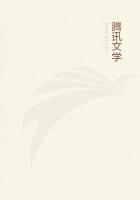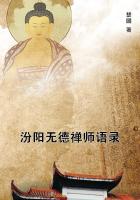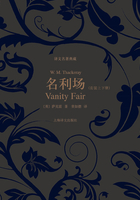One of Judge Methuen's pet theories is that the soul in the human body lies near the center of gravity; this is, I believe, one of the tenets of the Buddhist faith, and for a long time I eschewed it as one might shun a vile thing, for I feared lest I should become identified even remotely with any faith or sect other than Congregationalism.
Yet I noticed that in moments of fear or of joy or of the sense of any other emotion I invariably experienced a feeling of goneness in the pit of my stomach, as if, forsooth, the center of my physical system were also the center of my nervous and intellectual system, the point at which were focused all those devious lines of communication by means of which sensation is instantaneously transmitted from one part of the body to another.
I mentioned this circumstance to Judge Methuen, and it seemed to please him. ``My friend,'' said he, ``you have a particularly sensitive soul; I beg of you to exercise the greatest prudence in your treatment of it. It is the best type of the bibliomaniac soul, for the quickness of its apprehensions betokens that it is alert and keen and capable of instantaneous impressions and enthusiasms. What you have just told me convinces me that you are by nature qualified for rare exploits in the science and art of book-collecting. You will presently become bald--perhaps as bald as Thomas Hobbes was--for a vigilant and active soul invariably compels baldness, so close are the relations between the soul and the brain, and so destructive are the growth and operations of the soul to those vestigial features which humanity has inherited from those grosser animals, our prehistoric ancestors.''
You see by this that Judge Methuen recognized baldness as prima-facie evidence of intellectuality and spirituality. He has collected much literature upon the subject, and has promised the Academy of Science to prepare and read for the instruction of that learned body an essay demonstrating that absence of hair from the cranium (particularly from the superior regions of the frontal and parietal divisions) proves a departure from the instincts and practices of brute humanity, and indicates surely the growth of the understanding.
It occurred to the Judge long ago to prepare a list of the names of the famous bald men in the history of human society, and this list has grown until it includes the names of thousands, representing every profession and vocation. Homer, Socrates, Confucius, Aristotle, Plato, Cicero, Pliny, Maecenas, Julius Caesar, Horace, Shakespeare, Bacon, Napoleon Bonaparte, Dante, Pope, Cowper, Goldsmith, Wordsworth, Israel Putnam, John Quincy Adams, Patrick Henry--these geniuses all were bald. But the baldest of all was the philosopher Hobbes, of whom the revered John Aubrey has recorded that ``he was very bald, yet within dore he used to study and sitt bare-headed, and said he never took cold in his head, but that the greatest trouble was to keepe off the flies from pitching on the baldness.''
In all the portraits and pictures of Bonaparte which I have seen, a conspicuous feature is that curl or lock of hair which depends upon the emperor's forehead, and gives to the face a pleasant degree of picturesque distinction. Yet this was a vanity, and really a laughable one; for early in life Bonaparte began to get bald, and this so troubled him that he sought to overcome the change it made in his appearance by growing a long strand of hair upon his occiput and bringing it forward a goodly distance in such artful wise that it right ingeniously served the purposes of that Hyperion curl which had been the pride of his youth, but which had fallen early before the ravages of time.
As for myself, I do not know that I ever shared that derisive opinion in which the unthinking are wont to hold baldness. Nay, on the contrary, I have always had especial reverence for this mark of intellectuality, and I agree with my friend Judge Methuen that the tragic episode recorded in the second chapter of II.
Kings should serve the honorable purpose of indicating to humanity that bald heads are favored with the approval and the protection of Divinity.
In my own case I have imputed my early baldness to growth in intellectuality and spirituality induced by my fondness for and devotion to books. Miss Susan, my sister, lays it to other causes, first among which she declares to be my unnatural practice of reading in bed, and the second my habit of eating welsh-rarebits late of nights. Over my bed I have a gas-jet so properly shaded that the rays of light are concentrated and reflected downward upon the volume which I am reading.

